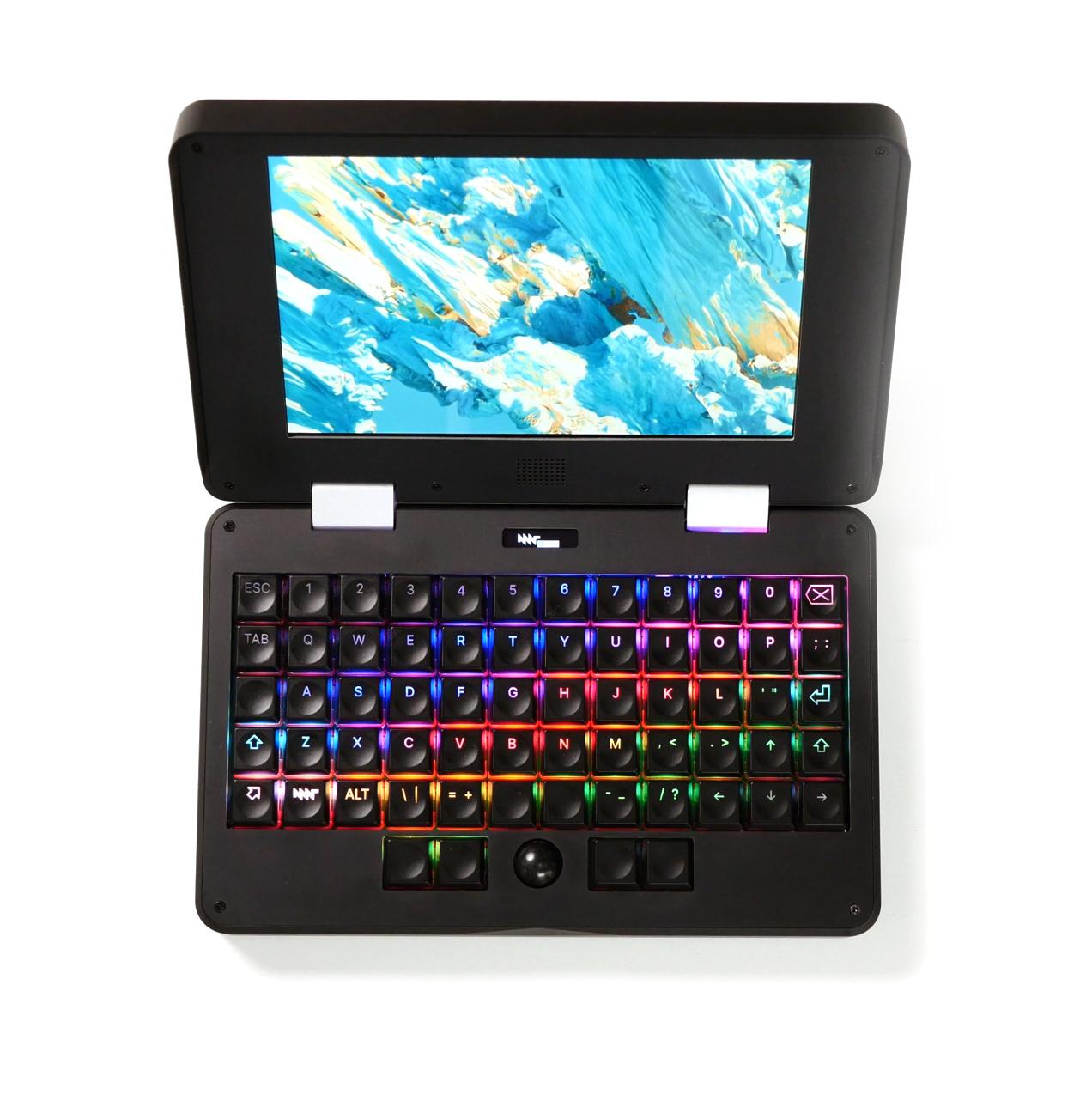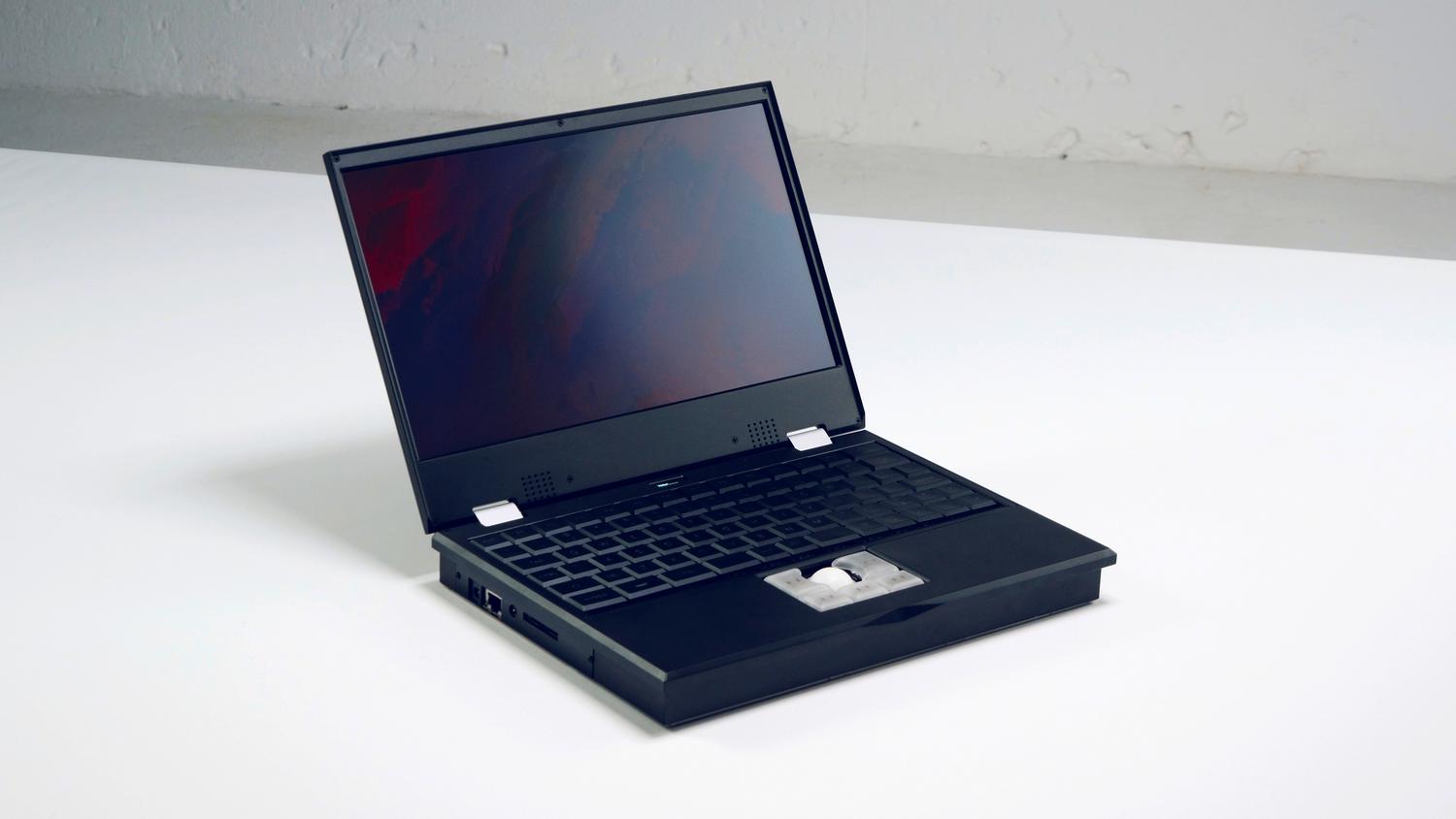True, this laptop does use an off-the-shelve computing module.
While ED could have done the same thing, to make life easier, a customer in-house board was designed making the development more complex.
Unfortunately ED committed near all possible erros. For me worst error wasn't using inhouse CPU board but using moulded plastic: in theory it was going to be cheaper because it was a few thousands units, but finally it was a nightmare and CNC milling on plastic block, or even on aluminum, would be cheaper and much faster (you can have samples and modifications in little time, contrary to molded plastic). I followed all those nightmares on moulded plastic during a lot of years.
And being in Europe doesn't mean the product is produced in Europe, they can still create parts outside of Europe:
Europe / Germany:
* Installation and laser engraving keycaps
* Battery
* Assembly of unit
China:
* PCB's
* Keyboard switches
* Aluminum body
* Hinges
Singapore:
* Keycaps
US:
* CPU module
Unknown:
* Display
I have not said parts (some of them or all of them) be created in Europe, I SAID
it is an European/German company or initiative. And while being European, they were successful selecting parts from all world, as it is a must in most technology devices today. None expects to get all parts from one country. Pyra get most parts from outside EU.
MNT Reform and Pocket Reform are examples of being European/German and being successfully developing a very small number machines, Pyra is the other side, an example of being unsuccessful. All of them use some parts-works from other countries.
I would prefer facts would be inversed, then Pyra being successful, but facts are facts.
And as you can see,
MNT Reform and Pocket Reform are smaller projects in buyers number, so your thesis of being a tiny organization, etc, are wrong: some people with small projects are successful, other aren't.
First worst problem of Pyra was choosing to use moulded plastic. If CNC milling would be chosen (like Nokia did in N9 and some Lumia, milling a block of PC, or being it in aluminum), being it made in EU or un China, it would be much faster and finally cheaper, and more important, probably Pyra would note be so delayed losing its moment. ED thought molded plastic is very cheap for a few thousand units (it was expected to ship around 2k-4k units), but he didn't think about problems with those parts: a lot of time, a lot of delays, shrinking, more imperfections, needing a lot of changes with moulds is very slow and expensive... all those problems would be solved selecting CNC, where you can have modified samples in days even in same day if CNC machine is near.
I appreciate time and effort ED has dedicated, he is a hero (we know it has been a nightmare for him), and I appreciate its tenacity, as a lot of other people would abandoned time ago, but he made same bad choices, while people on some other projects, successful projects, made better choices. Of course there are a lot of failed projects, Pyra is not an exception.








